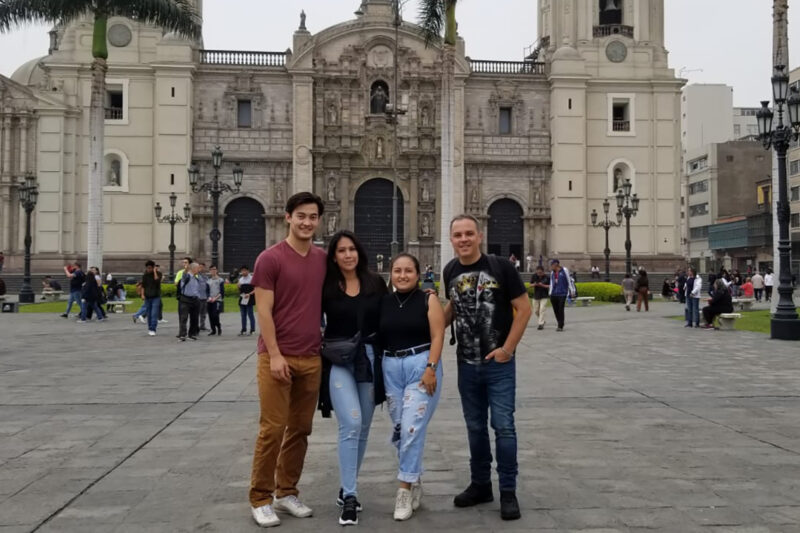Yale global affairs major Chase Daneker ’24 spent this summer in Peru, working with an NGO that supports community development projects in rural and vulnerable areas. In this blog, Chase shares his summer experience, which was made possible in part by the Leitner International Research & Internship Fellowship.
“Hola, Chase, y bienvenido.”
With a friendly greeting and firm handshake, Sr. Hart welcomed me to the office, Calle Enrique Palacios 335. USAID brochures sprouted from the corners of desks under a canopy of Peruvian maps that peeled from the walls in the thick Lima air — a metaphorical jungle foreshadowing of the work to come.
With the support of the Leitner International Research & Internship Fellowship and the John O’Leary & Patricia Cepeda Fellowship for the Study of Latin America, I traveled to Lima to work for CEDRO, a Peruvian NGO that supports community development projects in Peru’s rural and vulnerable departments. Within CEDRO, I worked on la Alianza por la Amazonia, an alternative development project that offers financing, technical support, digital marketing, and mental health services to small and medium enterprises in the Peruvian Amazon.
Alternative development is a crop substitution tactic that attempts to improve economic opportunity and security in illegal coca cultivating regions by assisting communities to transition into the legal economy. I first learned of the practice from Professor Ernesto Zedillo in his course “Economic Evolution of Latin America.” There, we discussed the persistent obstacle that is narco-trafficking and its relationship to common barriers to development in Latin America: high levels of informality, widespread citizen insecurity, and low state capacity. While ambitious, alternative development tends to produce positive but imperfect results, improving the economy and security in the targeted communities but pushing coca cultivation further into rural areas with low state capacity or into conservation zones, where crop substitution is illegal.
I wanted to study this dilemma more and better understand the challenges at the intersection of development, agriculture, and conflict, bringing me to Peru. With la Alianza por la Amazonia, my team was responsible for a statistical report to analyze surveys of 631 households and 2259 individuals in the Peruvian Amazon. The report examined differences in financial service demand, provision, and use between regions, communities (native or non-native), and agricultural products. We hoped any findings would reveal structural challenges impeding the farmers we assist and would inform us who and where the most assistance is needed and which types of assistance are the most important.
Notably, we found that among heads of households, women sought smaller loans and sought loans with less frequency than men. Our finding reflects the general patriarchal structure embedded in agriculture and reinforced through financial exclusion. It begs development actors to address the gender power imbalance within agriculture and seek ways to empower women farmers by improving access to capital, expertise, and decision-making opportunities.
Additionally, we found respondents from native communities saved in financial institutions less frequently than respondents from non-native communities, citing long travel distances to financial agencies and a lack of confidence in financial institutions to protect their savings. These responses reflect the physical and social constraints that impede financial inclusion in native communities and demonstrate the importance of both expanding access to the financial system and building trust to ensure access translates to use.
I’m thankful for the generosity of the donors who allowed me to pursue problems I find meaningful and explore my curiosity. I also want to thank Professor Ardina Hasanbasri for her mentorship and lessons in her course, “Approaches to International Development.” My work this summer was a natural extension of the class where I first studied financial inclusion and household surveys and learned to manage a data project and to ask thoughtful research questions. Lastly, I want to thank my team at CEDRO, whose kindness and patience made me feel welcomed and whose contagious enthusiasm made our work possible.
